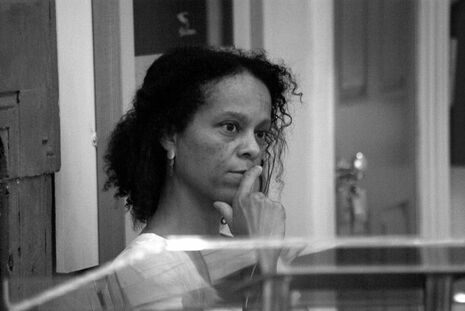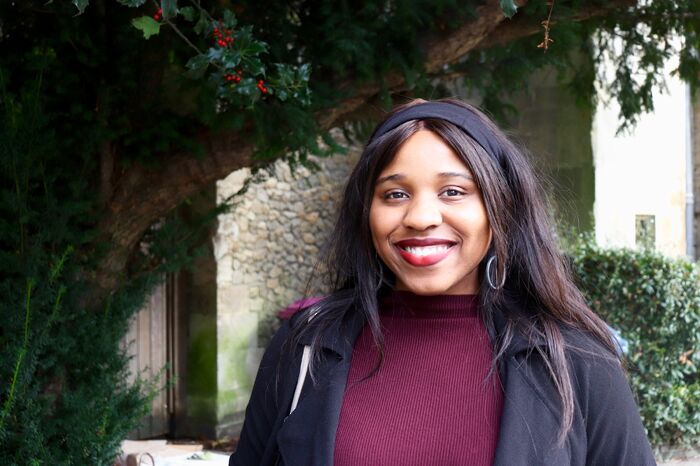The Booker Prize – a reflection
With the dust settling on the equivalent of a bombshell in the literary world, Grace Robinson reflects on the implications of the 2019 Booker Prize as well as telling you which winner to read

Monday 14th October. It’s a cold, crisp evening, but the literary world is hot with anticipation. Fiction fanatics frantically refresh their Facebook feeds, eagerly awaiting the promised live stream of the biggest book event of the year. After what seems like an age, the face of literary mogul Peter Florence, chair of this year’s judging panel, flickers into view - he appears nervous before the heavy lights and flashing press cameras, and the reason for his unease is soon revealed. They weren’t able to choose? There are…TWO winners? An audible gasp can be heard from bookworms all over the world - and indeed, I imagine, from within London’s Guildhall as both Bernadine Evaristo and Margaret Atwood begin to make their way to the stage to claim a prize which it seems they must share.
The two women take their place side by side at the podium and Atwood begins a speech which seems more apology than acceptance. “I kind of don’t need the attention,” she drawls, visibly embarrassed, “so I am very glad that…” there’s an excruciatingly long pause… what’s happening?... Oh god, she’s forgotten her name… she looks helplessly at the woman next to her… eventually she manages “you’re… getting some.”
Booker judge Afua Hirsch admitted...that The Testaments’ win was down to “the titanic career, the contribution to culture of Margaret Atwood” as opposed to the merit of the novel itself
This agonizing moment, seared forever onto the brains of those unfortunate enough to be privy to it, set the tone for what was to come. Two weeks after the judging panel of the 2019 Booker Prize flouted the clear-cut one-winner rule and obliged Atwood and Evaristo to split the £50,000 booty between them, the wound still stings. If the fact that the first ever Black British woman to win the Prize has had her history-making, ground-breaking thunder-moment stolen wasn’t bad enough (and it is really, really bad), the thunder-thief in question is only one of the most established and successful authors alive today. And if this wasn’t bad enough (and it is already even worse) Booker judge Afua Hirsch admitted, in a bizarre Guardian article comparing the literary judging process to childbirth, that The Testaments’ win was down to “the titanic career, the contribution to culture of Margaret Atwood” as opposed to the merit of the novel itself – unsurprising, given the sequel’s mediocrity in the face of its spearheading predecessor, The Handmaid’s Tale.
Outbreaks of indignation followed, and no one seemed more put out than Sam Jordison of Galley Beggar Press, the small indie publishing house home to Lucy Ellman’s experimental 1,000-page Ducks, Newburyport, one of four shortlisted books relegated to second-place. “We were led to believe it was a book prize, not a career prize. This is devastating to read. Why enter?” Jordison wrote on social media in response to Hirsch’s article. “In what way is this fair? Lucy went through so much, worked so hard, went to so many events. We have spent thousands of pounds that we don’t have. And we never had a hope from the start. Why did we even send them copies of the book to read? I am shaking.” He added that Hirsch’s comment “seems to make it clear that the playing field wasn’t level in the final meeting. It suggests more rules were flouted. That’s the objection.”
The witty and wonderful Evaristo didn’t let this eclipse her glory, expounding an empowered discourse both on the night ...and in press dealings since
Clearly, it’s not only supporters of Evaristo (and, well, you know, fairness) who are feeling cheated, and Jordison’s emotive outpouring sums up the general discontent perfectly. The Booker Judges – one man, four women, one woman of colour – had the chance to make history in 2019 and give the award to the gorgeous, innovative portrayal of contemporary Black British women that deserved it, head and shoulders above the rest. Instead, they chose to bow down in the face of what must have been extra-literary pressure, doing a disservice to the first ever female Black recipient of the prize in the process.
Thankfully, though, the witty and wonderful Evaristo didn’t let this eclipse her glory, expounding an empowered discourse both on the night (she managed to remember Atwood’s name) and in press dealings since. "A lot of people say, 'I never thought it would happen to me',” she twinkled, standing proudly on the podium, “and I will say I am the first black woman to win this prize, and I hope that honour doesn't last too long. I hope other people come forward now." There is hardly a shred of humility: she’s waited her whole career to win this prize, she knows she deserves it, and she’s proud to be able to set a precedent for women like her all over the literary world. She is, in my eyes and I’m sure those of many others, the real winner.
 News / Caius mourns its tree-mendous loss23 December 2025
News / Caius mourns its tree-mendous loss23 December 2025 News / Clare Hall spent over £500k opposing busway 24 December 2025
News / Clare Hall spent over £500k opposing busway 24 December 2025 Comment / Yes, I’m brown – but I have more important things to say22 December 2025
Comment / Yes, I’m brown – but I have more important things to say22 December 2025 Comment / The ‘class’ of Cambridge24 December 2025
Comment / The ‘class’ of Cambridge24 December 2025 Interviews / Politics, your own way: Tilly Middlehurst on speaking out21 December 2025
Interviews / Politics, your own way: Tilly Middlehurst on speaking out21 December 2025








